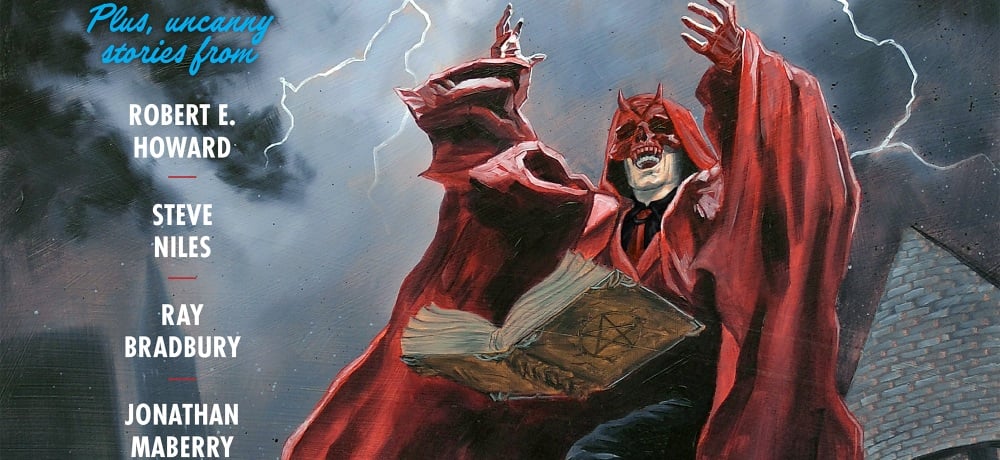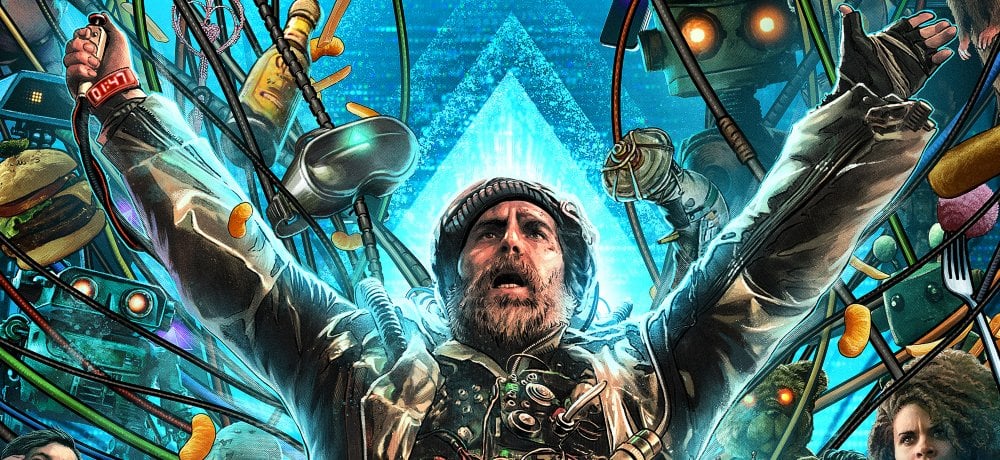





Arriving in theaters and on VOD and digital platforms this weekend is writer/director Henry Dunham’s taut and tension-filled thriller The Standoff at Sparrow Creek. Starring James Badge Dale, Brian Geraghty, Chris Mulkey, Gene Jones, Happy Anderson, Patrick Fischler, and Robert Aramayo, Dunham’s debut feature follows an ex-cop named Gannon (Dale), who joined a militia group after he gave up his career. Eager to put his law enforcement days behind him, Gannon is reluctantly tasked with figuring out which one of his fellow militia members are behind a shooting at a police funeral once it’s discovered that one of the men might have motives bigger than minding the interests of their controversial group.
Daily Dead recently spoke with Dale about his role in The Standoff at Sparrow Creek, and he discussed what initially drew him into the project, trusting his co-stars, and more. Look for the film in theaters and on a variety of digital outlets this Friday, courtesy of RLJE Films.
Great to speak with you today, James. From your perspective, what was the biggest appeal coming into this film? Was it the character itself of Gannon, was it getting to dive into this world in a way we probably have never seen before, working with Henry, or this cast?
James Badge Dale: The first thing is the script. It was just a special script, and in the first 20 pages you realize you're reading something different, and you're reading something that's a little risky. I like chewing on dialogue, too. There is also a stage play element to this. I'm an old theater guy from New York, and this was an opportunity to come in and chew on some things, and it was a very character-driven story. I think for all of us, we all wanted to come in and play with this world.
When you guys were getting ready for production, did Henry sit you all down and give you time to work out different beats between the characters and everything? I know a lot of that is on the page, but there's also that rhythm that you have to get once you're in the actual scenes and going back and forth. Or did everything fall into place once you guys started filming?
James Badge Dale: There's this saying that, and actually, I'm probably going to butcher this thing so I'm just going to paraphrase it, but casting is very important, and he put together a great group of actors. I'm not even talking about myself. I was like, "What am I doing here?" All these other guys, they show up ready, prepared, and they're talented and they're ready to swing, they're ready to play. On a smaller film like this, you don't have a lot of time. Sometimes you don't have a lot of time to talk about it or rehearse it, or refine it to that point.
You just trust that everyone has done their homework and will show up and is a professional. You're ready to go. Then you just keep filming it, tweak it this way, tweak it that way. It was just a special little film. We shot it in three weeks—three six-day weeks—mostly nights. And me, I'm obsessive with my work. It's not like you read the script once and then show up to work and then it goes on. You know what I mean? And I'm constantly redoing things, going back and doing homework when I’m on a film.
On this, we would go shoot 12 hours, and then I was lucky enough I stayed in this little neighborhood. So I'd go out, I'd meet people really quickly who owned restaurants and places. They would keep them open for me, and I'd call them, and I'd be like, "Hey, man, can you have the chef throw in a last order? I got to come in and do some work." While they're closing these restaurants, they'd let me sit in the back for two hours, eat dinner, and that's where I'd learn all my dialogue for the next day. It was great.
You touched on something that I wanted to ask about, in terms of who Gannon is as a character. I think it's interesting that we get to peel back a lot of layers to a lot of the other characters in this movie, but with Gannon, I feel like there's a lot more to him than we just see on the screen. It's not explicitly put out there, but yet there's a sense of him. You get the sense that it's not just a character we're meeting on "the first day" of his life or anything like that. Can you talk about finding him as this character in this world?
James Badge Dale: That's an excellent point, because you're seeing things through Gannon's eyes. This is, I think, one of the genius parts of Henry's scripts. You're learning what's happening as Gannon's learning what's happening. Yes, you learn less about Gannon, because Gannon is discovering things about other people and the circumstances they're in. The movie almost takes place in real time, where it starts with an inciting incident, and it ends the same night.
There are a lot of things that as an actor you've got to fill in the blanks here, because some of the answers are not for you on the page. The audience won't see them, and so you try to find things that you can personalize and things that you can draw on from your own life. If you're coming from someplace deep within you, it's always better than manufacturing something that is not there at all.
You're an actor who has worked at pretty much every level in Hollywood. You've worked on really big movies, you've worked on very intimate movies like this, and you've worked on the in-betweeners, as I like to call them. So when you’re looking at new projects to take on, what is it that you’re looking for these days?
James Badge Dale: I love what we get to do as actors. I love making movies. I love what we do. I try to do things that I'm passionate about. I'm no good if I'm not passionate about something, you know what I mean? You're better off hiring another actor. They'll do a better job than me. When I find scripts that excite me, it's different. I've been really fortunate. Over the last 15 years, I've played characters that I care about, I've worked on things that I care about deeply, and I've worked with people that I care about deeply. It's all been good to me. Maybe this is the year it ends, and maybe it isn’t. You just never know in this business. It's funny, as an actor you're basically an independent contractor. Someone said to me a long time ago, "You treat every job like your first, and you also treat it like your last." And that’s something I’ve always taken to heart.